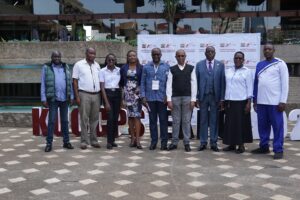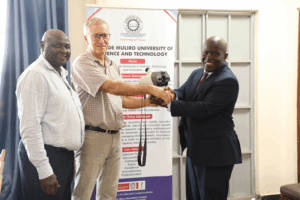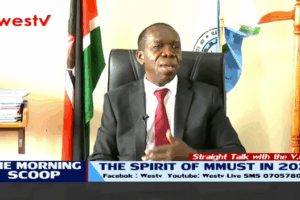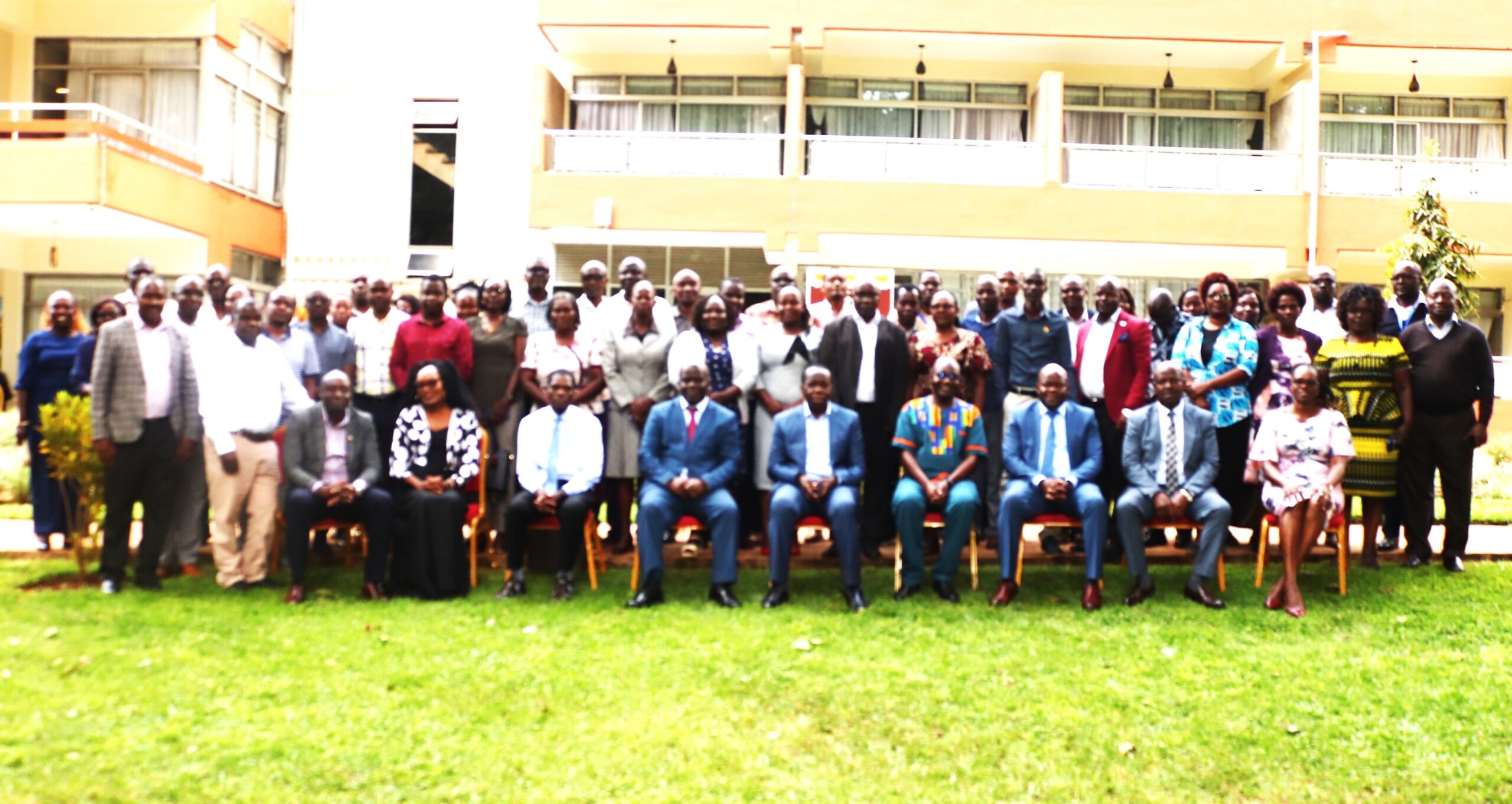
MMUST Conducts Capacity Building Workshop to Its Researchers Aimed at Enhancing Grants Management and Research Accountability
Masinde Muliro University of Science and Technology (MMUST) on 2nd October 2025 conducted a capacity-building workshop for researchers with ongoing grants, aimed at strengthening capacity in grants management, ethical compliance, and financial accountability. The workshop, organized by the Director of Research and Postgraduate Support, Prof. Francis Orata, took place at the Golf Hotel, Kakamega. This exercise underscores the University’s commitment to strengthening its research portfolio and enhancing accountability in grant management.
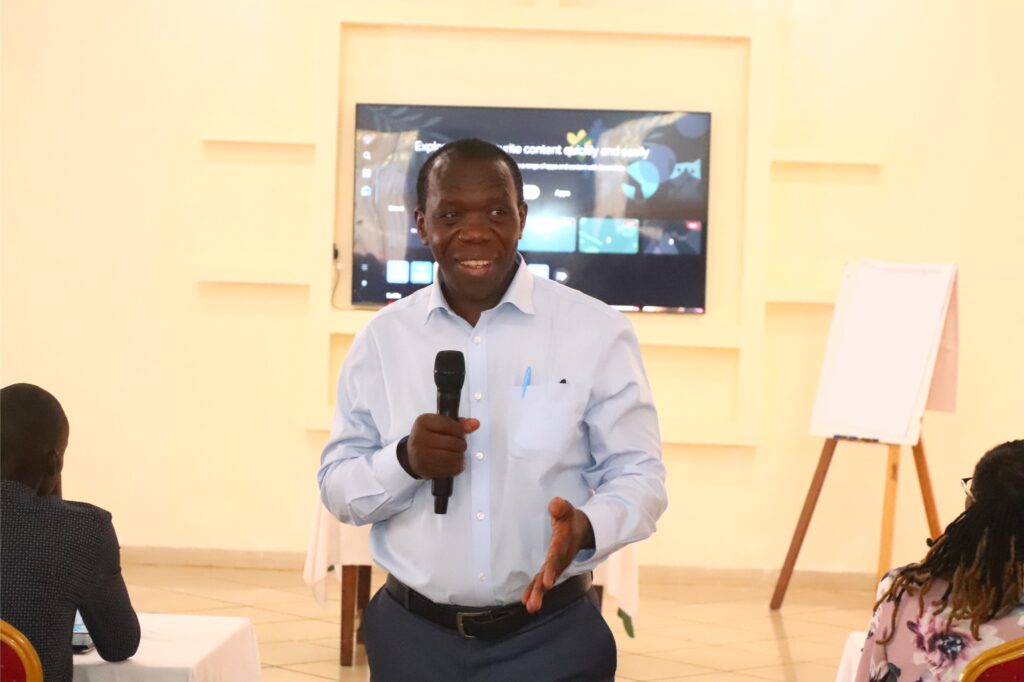
The Vice Chancellor, Prof. Solomon Shibairo addresses participants during the workshop.
The workshop was graced by the Vice Chancellor, Prof. Solomon Shibairo, who noted that effective grants management is a cornerstone of MMUST’s vision of becoming a premier university in science, technology, and innovation. He urged researchers to embrace integrity, transparency, and professionalism in managing research funds.
Speaking during the event, the Ag. Deputy Vice Chancellor (Planning, Research and Innovation)-Prof. Peter Bukhala stated that the University is committed to creating an enabling environment for research and innovation. He urged participants to take full advantage of such capacity-building initiatives to not only comply with grant requirements but also to enhance the visibility and impact of their research. Prof. Bukhala emphasized that proper grants management is a shared responsibility that contributes to MMUST’s growth and reputation as a premier research-led institution.
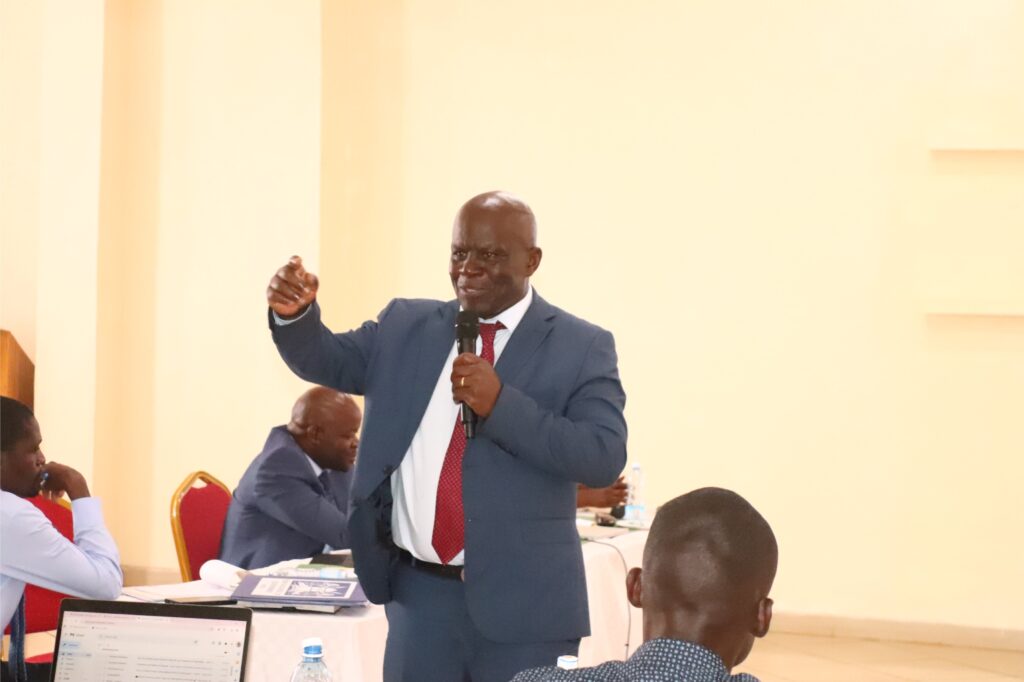
The Ag. Deputy Vice Chancellor (Planning, Research and Innovation)-Prof. Peter Bukhala speaks at the workshop.
Representing the Deputy Vice Chancellor (Administration and Finance), Prof. Maurice Vincent Omolo stated that sound financial management is central to the sustainability of research projects. He stressed the need for researchers to work closely with the finance department to ensure proper documentation, timely reporting, and compliance with funding regulations.
During plenary session, Prof. Francis Orata chaired discussions where he highlighted the vital role of Principal Investigators (PIs) in driving research excellence. Prof. Orata encouraged the researchers to be flexible in sharing ideas and to collaborate across disciplines. He advised that when a promising idea falls outside one’s area of expertise, it is prudent to allow the qualified scholar in that field to serve as the PI, as this greatly enhances the chances of winning competitive grants.
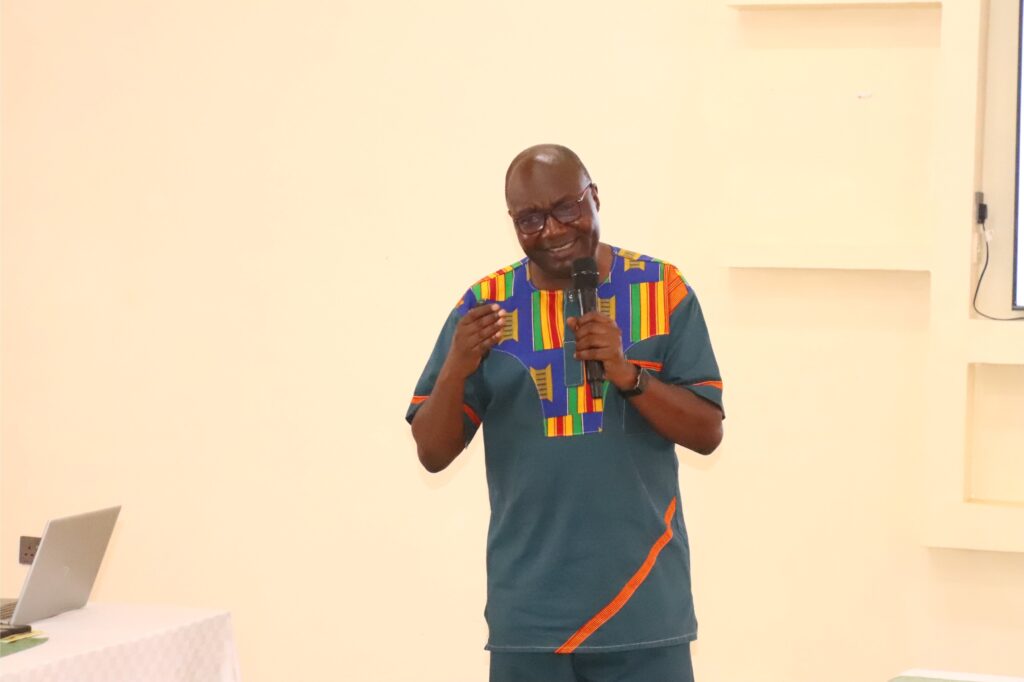
Dr. Julius Sindi makes his presentation during the workshop.
The workshop featured various presentations from experts including Dr. Julius Sindi from African Population and Health Research Center (APHRC). Dr. Sindi outlined common budgeting mistakes that often compromise the success of projects and explained the critical areas auditors focus on during evaluations. He further underscored the importance of strict adherence to procurement procedures as a key aspect of compliance. He encouraged researchers to maintain consistent communication with their donors and to publicize their projects as a way of enhancing visibility, strengthening partnerships, and building confidence among funding agencies.
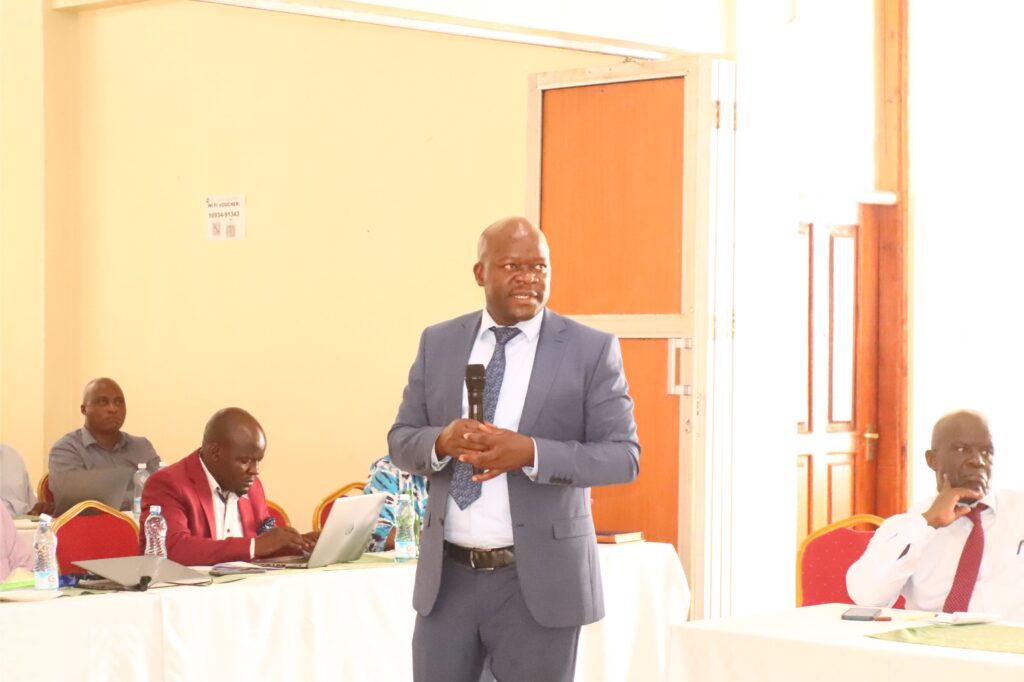
The Chief Executive Officer of the National Research Fund (NRF), Prof. Dickson Andala during his presentation.
Similarly, the Chief Executive Officer of the National Research Fund (NRF), Prof. Dickson Andala, presented on ‘Ethical Practices in Grants and Penalties for Defaulting Grantees.’ In his presentation, he noted that adherence to ethical standards is fundamental in sustaining trust between researchers and funding agencies. Prof. Andala cautioned that defaulting on grant obligations attracts serious penalties, which can jeopardize both the researchers’ profiles and the reputation of the institution. He urged them to uphold integrity, transparency, and accountability in every stage of their projects, noting that these values are critical for attracting and retaining competitive funding.
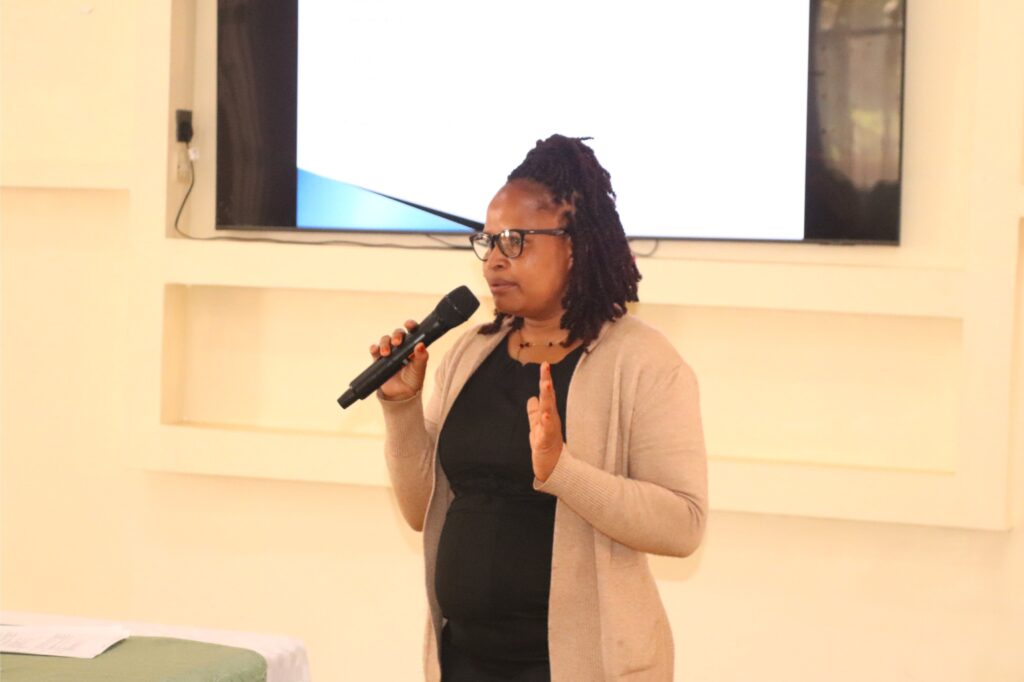
CPA Stella Kabuga makes a presentation at the workshop.
Additionally, MMUST Grants Accountant- CPA Stella Kabuga guided the participants through what is required by the Finance Office in Research Funds Accounting. She outlined compliance procedures and the role of collaboration between researchers and finance department officers.
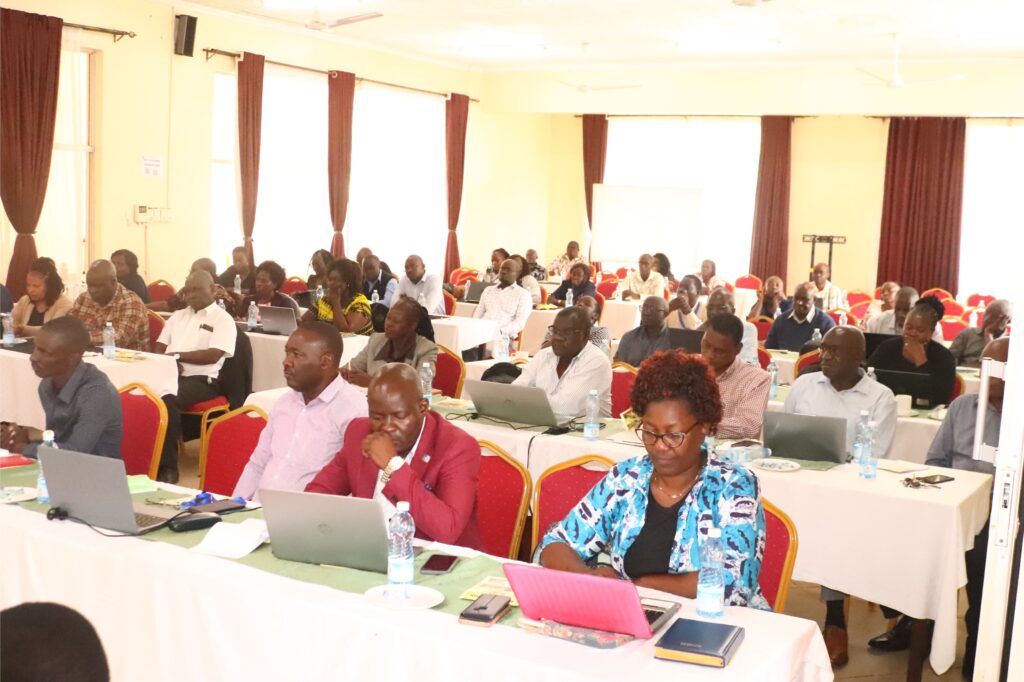
A section of the participants keenly follows the presentations.
By conducting this capacity building training to researchers with active projects, the University seeks to consolidate progress, address challenges, and ensure alignment with both national development priorities as well as the global research standards.
By Linet Owuor

